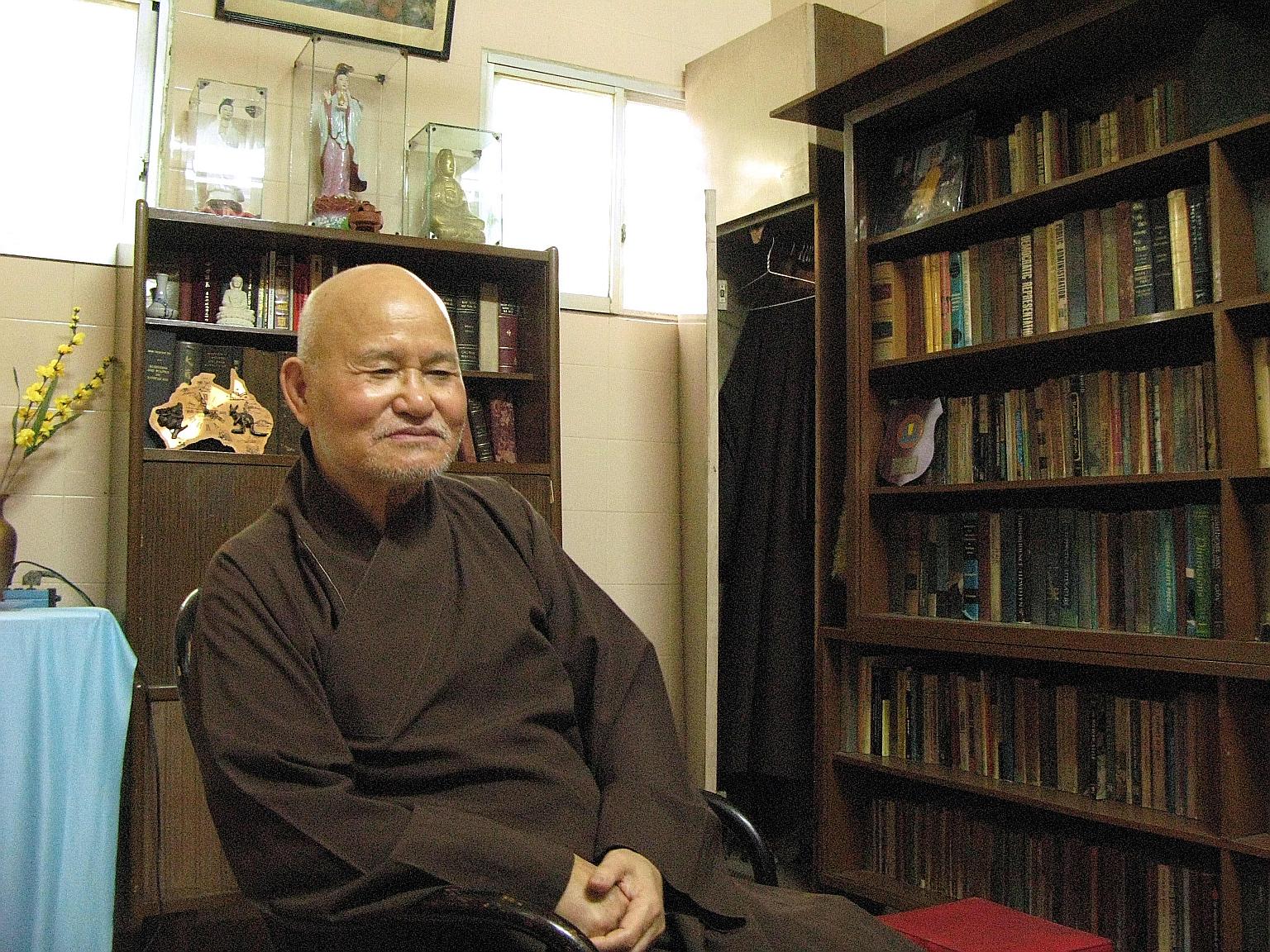Vietnamese dissident monk, a Nobel Prize nominee, dies
Sign up now: Get insights on Asia's fast-moving developments

Mr Thich Quang Do, head of the banned Unified Buddhist Church of Vietnam, was an advocate for religious freedom and human rights. He spent some 30 years in and out of prison or under house arrest.
PHOTO: AGENCE FRANCE-PRESSE
HANOI • Mr Thich Quang Do, a dissident Buddhist monk who had effectively been under house arrest since 2003 and was nominated multiple times for the Nobel Peace Prize, has died aged 93.
Head of the banned Unified Buddhist Church of Vietnam (UBCV), the vocal patriarch was born in northern Thai Binh province and spent most of his life advocating for religious freedom and human rights in communist-run Vietnam.
His staunch activism landed him under what was effectively house arrest in Ho Chi Minh City in 2003, where he was under constant surveillance.
Mr Do died on Saturday night at Tu Hieu pagoda, UBCV announced yesterday morning.
According to his will signed in April last year, Mr Do requested a "simple funeral, not more than three days". "After the cremation, my ashes will be scattered at sea," said the statement quoting his will.
The UBCV also requested his followers not to bring money, as is customary for Vietnamese funerals. "There will be no final words, no biographies, no emotional showings... just praying."
Mr Do had long been a thorn on the side for communist-run Vietnam, and was nominated multiple times for the Nobel Peace Prize for his vocal advocacy for democracy.
The formative event of his life came in 1945, the year Ho Chi Minh declared Vietnam's independence from France. Mr Do, then a teenager, witnessed the execution of his religious master by a communist people's court.
"Then and there I vowed to do all that I could to combat fanaticism and intolerance and devote my life to the pursuit of justice through the Buddhist teachings of non-violence," Mr Do wrote, according to a biography issued by the UBCV's Paris office.
Some 30 years of his life were spent in and out of prison or under house arrest, as the regime accused him of "counter-revolutionary activities" and refusing to bring his church under state control.
The UBVC has been banned since the early 1980s when it refused to join the state-sanctioned Vietnam Buddhist Church.
In 2001, he wrote an "Appeal for Democracy", which saw the support of more than 300,000 Vietnamese from different religious backgrounds, according to the US Commission on International Religious Freedoms (USCIRF).
Vietnam has long had an uneasy relationship with organised religion. The USCIRF has recommended to the US State Department that Vietnam be designated as a "country of particular concern", citing "systematic, ongoing, egregious violations of religious freedom". The State Department, however, has not assigned the designation.
AGENCE FRANCE-PRESSE


